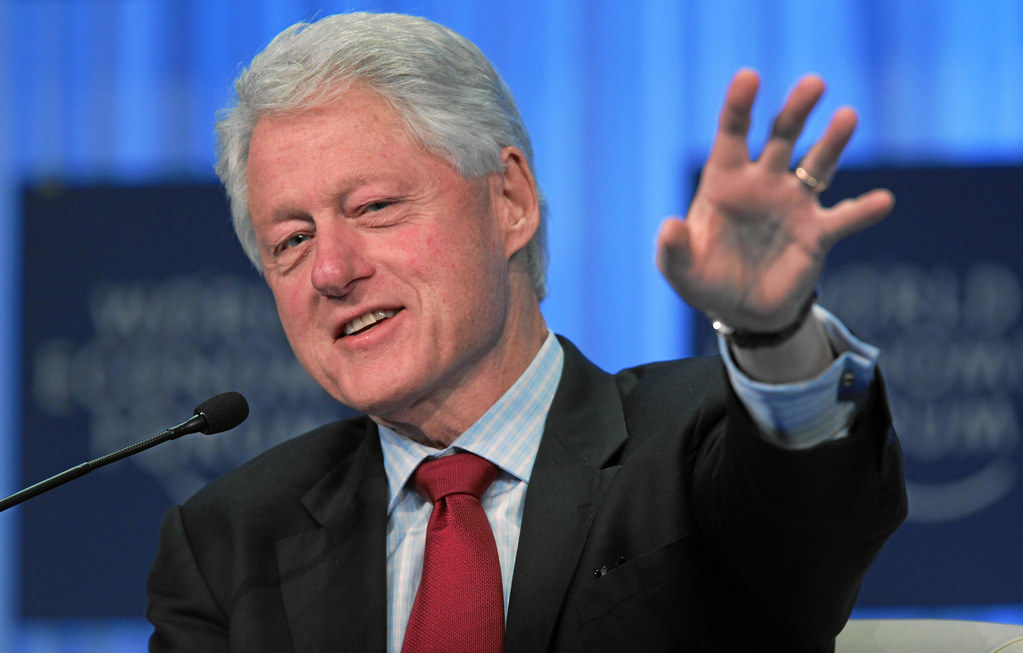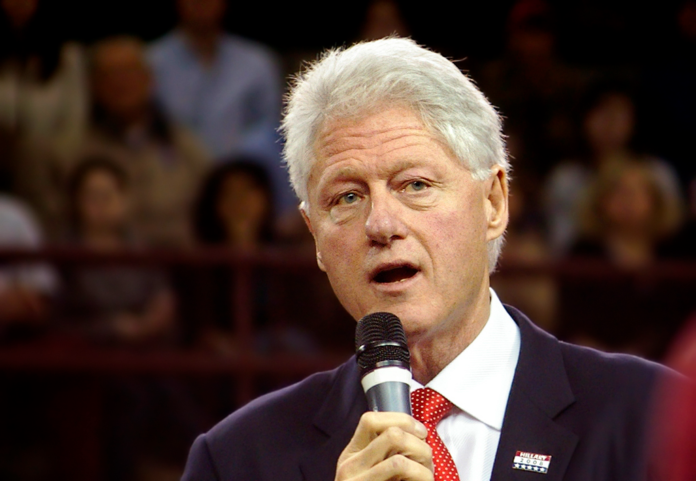Former President Bill Clinton is hospitalized due to a fever. Learn about his current health update, past medical history, and his enduring impact on American politics.
Bill Clinton Hospitalized for Fever: Key Updates
Former U.S. President Bill Clinton, a prominent and influential leader in American politics, has been admitted to a hospital in Washington, D.C., following the onset of a fever. The 42nd president, who has faced significant health challenges in the past, remains stable and under observation. His hospitalization highlights his resilience and ongoing dedication to public life despite advancing age and recurring medical concerns.
The Current Health Update
Hospital Admission Details
On Monday, Angel Ureña, Bill Clinton’s deputy chief of staff, announced that the former president had been hospitalized. Clinton experienced a fever, leading his medical team to admit him to MedStar Georgetown University Hospital for detailed evaluation and monitoring.
“President Clinton remains in high spirits and is immensely grateful for the outstanding care he is receiving,” Ureña stated in an official release.
Sources close to Clinton assured the public that this was not an emergency. “He is awake, alert, and fully communicative,” they said, adding that the hospitalization is a precautionary measure to ensure his well-being.
Bill Clinton’s History of Health Challenges
Cardiac Complications and Surgeries
Bill Clinton has a history of cardiac issues, which began in earnest after he left the White House in 2001. In 2004, he underwent a quadruple bypass surgery to address severe blockages in his coronary arteries. The procedure was performed at New York-Presbyterian Hospital after Clinton experienced chest pain and difficulty breathing.
In 2010, Clinton had another cardiac procedure. This time, doctors inserted two stents into his coronary arteries. These medical interventions underscored the importance of routine monitoring and care for his cardiovascular health.
Urological Infection in 2021
In 2021, Clinton faced another significant health scare when an urological infection spread to his bloodstream. The situations led to a six-day stay in a California hospital.Despite the severity of the infection, Clinton’s recovery was swift, thanks to the timely intervention of his medical team.
Clinton’s Life After the Presidency
Continued Public Engagement
Since leaving the White House, Bill Clinton has remained a prominent figure in American politics. He has campaigned vigorously for Democratic candidates, including Vice President Kamala Harris. His ability to connect with voters and articulate the Democratic Party’s vision has made him a vital asset in modern campaigns.
Author and Philanthropist
Beyond politics, Clinton has authored several books, including a memoir detailing his life and presidency. In his most recent work, he reflects on his journey after leaving the Oval Office, addressing both personal growth and the challenges he has faced.
In addition to writing, Clinton has devoted much of his time to philanthropy. The Clinton Foundation, which he co-founded with his wife Hillary Clinton, focuses on global issues such as healthcare, economic development, and climate change.
Bill Clinton’s Enduring Influence
Voice of the Democratic Party
Since 1976, Clinton has spoken at every Democratic National Convention (DNC). His speeches are a testament to his enduring influence in the party and his commitment to its ideals.

At the 2024 DNC, Clinton delivered an emotional address, reflecting on his legacy and the importance of unity in the face of political challenges. “I want to say this from the bottom of my heart,” he told the audience. “I do not know how many more of these i will get to attend.”
A Legacy of Resilience
Clinton’s ability to remain a central figure in American politics despite his health challenges is a testament to his resilience. His dedication to public service continues to inspire millions, proving that leadership extends far beyond one’s time in office.
What This Means for His Supporters
Monitoring and Optimism
Clinton’s medical team is conducting thorough evaluations to ensure his recovery. Given his history of bouncing back from health challenges, supporters are optimistic about his prognosis.
His hospitalization has also served as a reminder of the importance of addressing health concerns promptly, a lesson Clinton has exemplified throughout his life.
Public Reactions
As news of Clinton’s hospitalization spread, an outpouring of support flooded in from political allies and admirers. Messages of encouragement and prayers for his recovery reflect the deep respect and admiration he commands across the political spectrum.
Clinton’s Impact on Future Generations
Lessons from a Life of Service
Bill Clinton’s life offers valuable lessons in resilience, adaptability, and dedication to public service. From his presidency to his post-White House years, he has consistently demonstrated a commitment to bettering society, even in the face of personal health struggles.
Inspiring Young Leaders
Clinton’s ability to navigate challenges and remain an influential voice in politics serves as an inspiration to future generations. His legacy encourages young leaders to prioritize perseverance and service above all else.
Conclusion
Bill Clinton’s recent hospitalization for a fever has drawn attention, but his stable condition and history of resilience reassure supporters. From battling cardiac issues to overcoming infections, Clinton has faced numerous health challenges with grace and determination.
As Clinton continues to recover, his story remains a powerful reminder of the strength it takes to lead a life of service. His influence on American politics and his dedication to public welfare will undoubtedly inspire generations to come.
